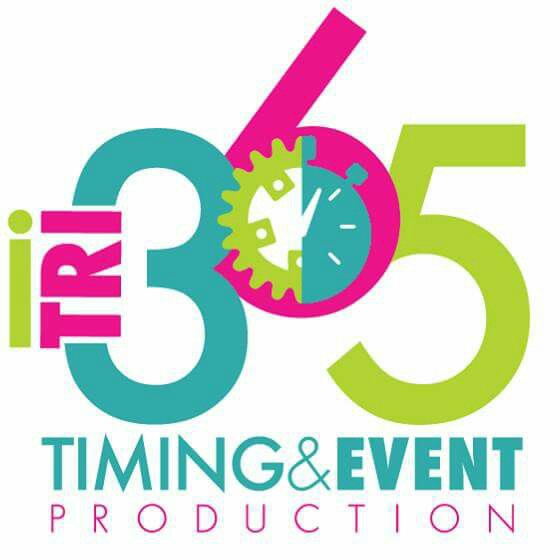Breathing Battles Part 1 - When Swimmers Struggle to Run
Having been a runner since I was 12, averaging anywhere from 3 to 9 miles a day, I never thought about breathing as an adult. I think learning techniques at an early age, specifically during adolescence, when my hormones were helping shape my 'operating systems', breathing during my runs was a normal, rhythmic occurrence.
Now, as a triathlon coach, I have found myself not only reading through research on breathing techniques but also reflecting on my own practice and experience in order to help my athletes.
Something that has happened three times in this past year alone is working with swimmers who struggle to breathe on the run. Three separate athletes, all swimmers, ranging from childhood swim team to collegiate swimmer; none having been runners in the past.
What I found to be common with each of them was struggling to get their breathing under control on the run. If this had been a one time occurrence, I wouldn't be writing about it. But, having had 3 different athletes present with the same problem, I thought it might be helpful for other athletes and coaches who might run into the same issue.
What I Found
Each athlete had difficulty with (1) 'controlling' their breathing, (2) regulating heart rate on base runs, (3) holding run form.
What I recognized immediately was either erratic breathing, overly controlled breathing or an attempt to maintain a specific rhythm (2/2, 4/4). When speaking with them I'd find that they were given a whole host of 'advice' on how they 'should' be breathing or they had read a ton of articles and had been trying different things, but to no avail.
There are almost as many opinions on breathing rhythm as there are on politics. In this specific situation, similar to situations with brand new runners, I found that giving them the space to just breathe made all the difference in the world. However, this had to be explained.
Unlike running, swimming only requires small bites or nips of air. Too much inhalation can work against the swimmer. Swimmers have massive lung capacity and can hold their breath exceptionally well and therefore, tend to get frustrated when it feels they can't catch their breath while running.
Questions to ask:
Am I holding my breath? Am I trying to purposely slow my breathing down and then gasping for air on my next inhalation? Am I taking in enough air when I do inhale?
Many coaches will build a runner's foundational mileage based on heart rate training. This can be deceiving when an athlete is attempting to 'regulate' their breathing on a run but actually achieving the opposite. I have observed an increase in heart rate while the athlete seemingly maintained a very low RPE (rate of perceived exertion).
What Athletes Would Tell Me
“I don't understand why I can't keep my heart rate down. I'm running so slow, I'm almost walking. It doesn't make sense.”
The coach gets feedback but often, without running alongside the athlete, will not realize the problem is in the breath.
When you can't breathe, you can't train proper adaptation and you also cannot hold run form. We see this in swimming as well. Without mastering breathing techniques, the rest fall apart.
The Good News
Swimmers just need to breathe.
In my practice as a coach, I would tell my swimmers to BREATHE. And be dramatic about it! I wanted to hear the loud exhales, embarrassing heaving, ugly, smelly breathing. I wanted them to FEEL what it was like to actually get the oxygen their muscles needed.
Unfortunately, for some, the mere thought of sounding like a freight train, was enough to derail it. (haha, that was a good one). Seriously though, feeling self-conscious was a reason they kept breathing 'soft, quiet and controlled.' Don't let that be a factor.
Once the freight train was let loose, it was like night and day.
They had permission to breathe. The long, ingrained 'sips' of air they had been taught throughout their swimming career required a bit more conscious thought, but utilizing the incredible amount of lung capacity in this way opened up a brand new world.
As they became more conditioned (since they could now breathe and get miles in without dying), they also began to develop a natural pattern. Oftentimes, these natural patterns don't have to be modified.
There may be a school of thought that argues a technique should be taught from the get-go, but most of us, as age-groupers, will not go on to be Elite or pro-athletes. As the athlete develops, the coach can introduce more specific run sets, working on finding breathing patterns that fit with the runner's level.
There are so many factors and variables with each individual. Call me old school, but I just don't think one size fits all.
If you're a swimmer and you struggle with your run, evaluate your breathing.
The problem crosses over for runners getting into the water and trying to take HUGE gulps of air, for fear of not getting enough...
...and we'll save that article for next time.
#breathe #youcanrun
Continue reading: Breathing Battles Part 2 - Struggling to Swim
Cori Moore
iTRI365 Coach
www.itri365.com
cori@itri365.com
